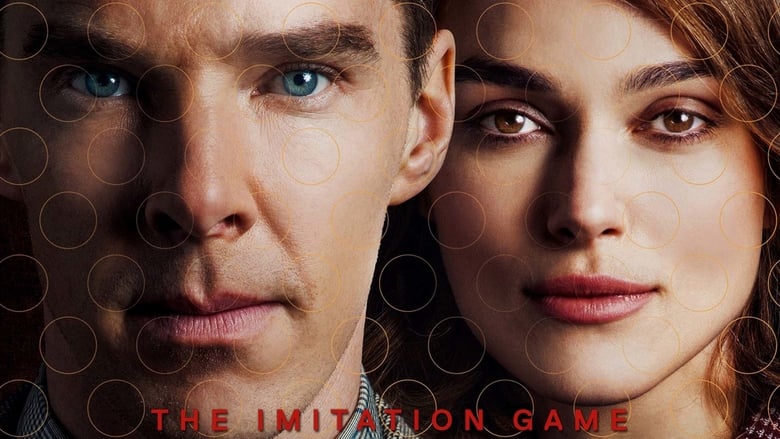← Back to Reviews

in

The Imitation Game, 2014
During WW2, Alan Turing (Benedict Cumberbatch) is hired by the military to help break the German Enigma machine. Told in extended flashbacks, we see Turing's attempts to design a machine that can perform the computations to break the German cypher. Hiding his sexuality---to the extent that he enters an engagement of convenience with his co-worker Joan (Keira Knightley)--Turing must brave setbacks in his personal and professional life.
I enjoyed this film a lot more than I expected to, and almost in spite of what I often find really tiresome about prestige films and especially biographical ones.
The performances are all pretty solid, with the caveat that I don't know enough about Turing's life to judge one way or another how the people portrayed match up to their real counterparts. The friendship between Alan and Joan is especially enjoyable, as it serves both their interests to be seen as a couple.
In terms of the Enigma machine itself, well, I am a big math nerd and would have liked a more elaborate explanation of how it all worked and the nature of Alan's decoding machine. The movie gives a lot of "smart people" shorthands, but whatever.
Normally my biggest quibble with biographies is the underlying discomfort with knowing that events, words, and sometimes even people have been invented wholecloth for the purposes of the film. But in this case I actually didn't mind it. The film sets up a theme of deception (or, to be more accurate, imitation), and it plays out pretty well through the film. Obviously the literal reference is to the machines, but Alan is also imitating being a "normal" person, and beyond that imitating being a straight "normal" person. Through the film there are multiple people who pretend to be what they aren't. It nicely frames the absurdity of Alan having to hide being gay. I quite liked a sequence where Alan talks about machine intelligence with a police investigator, in which he questions what it means to be thinking, further questioning why we are so upset when people are wired differently.
As with many biographies, what we learn about Turing's life feels cursory and a bit shallow. But I enjoyed the sections they highlighted, and the performances are strong enough to keep you invested.
A step above what I expected.

The Imitation Game, 2014
During WW2, Alan Turing (Benedict Cumberbatch) is hired by the military to help break the German Enigma machine. Told in extended flashbacks, we see Turing's attempts to design a machine that can perform the computations to break the German cypher. Hiding his sexuality---to the extent that he enters an engagement of convenience with his co-worker Joan (Keira Knightley)--Turing must brave setbacks in his personal and professional life.
I enjoyed this film a lot more than I expected to, and almost in spite of what I often find really tiresome about prestige films and especially biographical ones.
The performances are all pretty solid, with the caveat that I don't know enough about Turing's life to judge one way or another how the people portrayed match up to their real counterparts. The friendship between Alan and Joan is especially enjoyable, as it serves both their interests to be seen as a couple.
In terms of the Enigma machine itself, well, I am a big math nerd and would have liked a more elaborate explanation of how it all worked and the nature of Alan's decoding machine. The movie gives a lot of "smart people" shorthands, but whatever.
Normally my biggest quibble with biographies is the underlying discomfort with knowing that events, words, and sometimes even people have been invented wholecloth for the purposes of the film. But in this case I actually didn't mind it. The film sets up a theme of deception (or, to be more accurate, imitation), and it plays out pretty well through the film. Obviously the literal reference is to the machines, but Alan is also imitating being a "normal" person, and beyond that imitating being a straight "normal" person. Through the film there are multiple people who pretend to be what they aren't. It nicely frames the absurdity of Alan having to hide being gay. I quite liked a sequence where Alan talks about machine intelligence with a police investigator, in which he questions what it means to be thinking, further questioning why we are so upset when people are wired differently.
As with many biographies, what we learn about Turing's life feels cursory and a bit shallow. But I enjoyed the sections they highlighted, and the performances are strong enough to keep you invested.
A step above what I expected.
